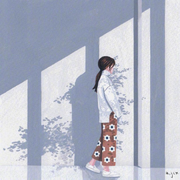专栏名称: 慧觅玺
| 三分热度也想试试 |
今天看啥
公众号rss, 微信rss, 微信公众号rss订阅, 稳定的RSS源
目录
相关文章推荐

|
发现新西兰 · 来新西兰9年,华人妈妈关掉店面,全家搬去澳洲 ... · 昨天 |

|
发现新西兰 · 新西兰“马甲外卖”被曝光!“吃得到,找不着” ... · 昨天 |

|
发现新西兰 · “肉也吃不起了!”新西兰华人怒斥超市“刺客” ... · 4 天前 |




